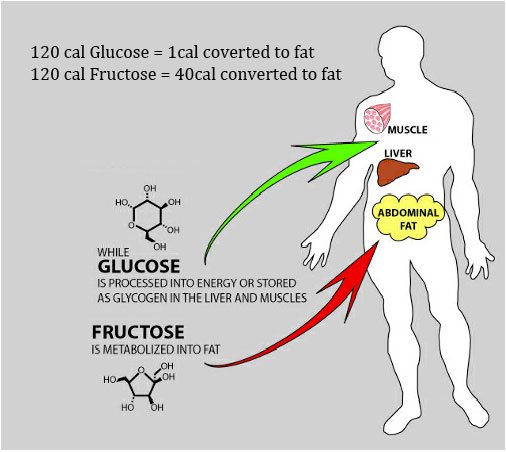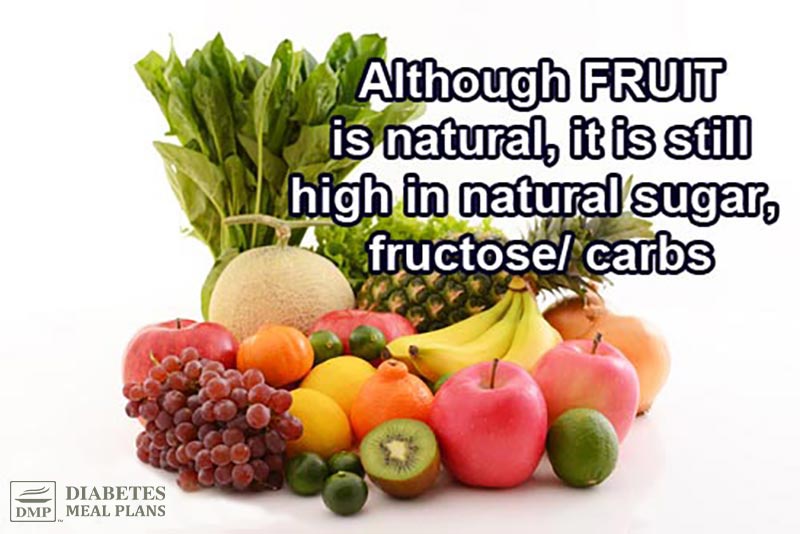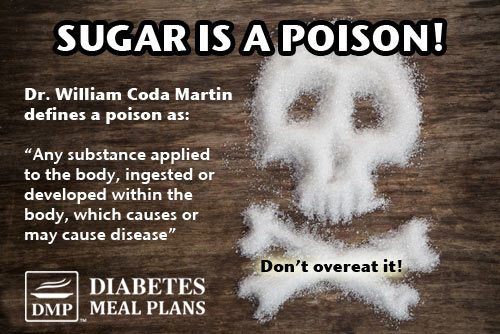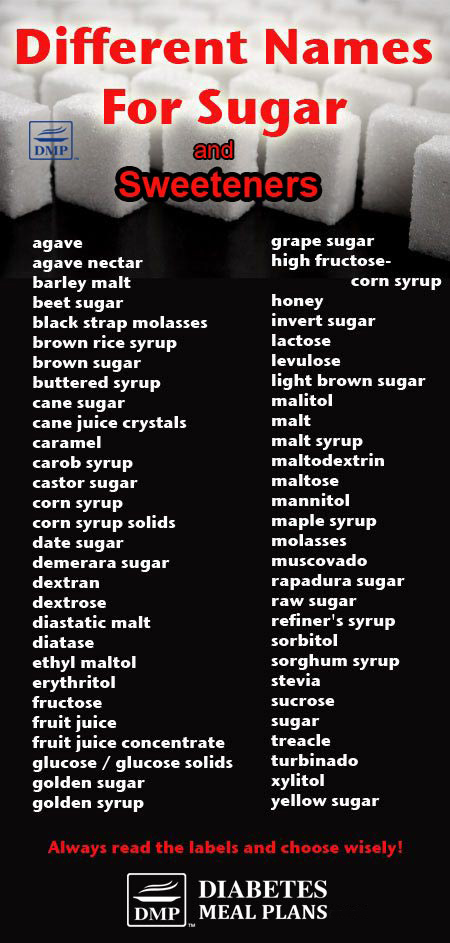Table of Contents[Hide][Show]
Sugar, sugar, sugar!!
It’s everywhere, we’re all addicted, and it really is a BIG topic of discussion – we could go on and on and on about sugar all day!
But what we want to share today is the difference between sugar, sucrose, and fructose, and why eating sugar has become such a problem for us.
Glucose vs Sucrose vs Fructose
Fructose is found naturally in things like fruit and honey but it is also found in the common sugar alternative high fructose corn syrup (HFCS), and believe it or not, table sugar!
When it comes to the differences it’s all about the molecules and how they metabolize in the body.

Glucose
Glucose exists on it’s own and is also commonly known as dextrose.
Sucrose
When fructose is joined to glucose it makes sucrose. We extract it from sugar cane, beets, corn and various other plants, and for the most part we produce table sugar.
Fructose
Fructose in it’s natural state in fruit comes packaged with fiber, vitamins, minerals and many other compounds that help the fructose metabolize more effectively in the body.
Fructose from HFCS and table sugar both contain the glucose and fructose molecule.
Fructose is also in agave, which is mostly fructose at 85%, not a healthy option like many people think it is. Generally in the majority of natural foods where fructose is found, it’s about 50/50 ratio. For example in fruits and honey.
Over consumption of fructose has been linked to increased weight gain, higher triglyceride levels and cholesterol, high blood pressure and insulin resistance, higher small dense LDL cholesterol, and fatty liver.
Metabolism in the body is the issue

Sucrose and fructose are virtually the same thing because it’s the fructose component that affects your body – meaning eating sugar is not a good thing. Remember, it’s 50% glucose, 50% fructose.
When glucose is metabolized it gets digested and can be used by the body for energy or stored as glycogen in the muscles or liver for later use as energy. This is usually a fairly efficient process, though this mechanism doesn’t work as effectively if you’re diabetic.
On the other hand, fructose gets metabolized entirely by the liver.
What happens during the metabolism of fructose is basically three things:
1. Fructose gets metabolized to fat – it does not get used as energy like glucose but gets preferentially stored as fat.
2. Fructose creates more uric acid – increasing inflammation.
3. Fructose creates more free radicals – cancer and disease causing cells that we really don’t need.
None of these things is a good outcome for your health.
Increasing intake of fructose has been linked to increased weight gain and insulin resistance – because it has such a strong effect on the liver.
Fructose doesn’t require insulin because it gets metabolized by the liver. For this very reason, when researchers first discovered it they thought it would make a great substitute for sugar. But now we know more about it, we know it’s not safe for any of us to eat in large quantities. And if you’re diabetic it only contributes to insulin resistance and worsens diabetes.
A lot of this might all seem a bit too technical, but it’s good to understand sugar and fructose, and it’s connection to diabetes and health problems.
Fructose 2.0
If you have a spare hour to skip TV and watch this video by Dr Robert Lustig, it is very eye opening and explains the issues with fructose consumption.
Those images say it all!
Fruit Is Sugar

Although fruit is a natural food source, one thing to keep in mind is that fruit is high in natural sugar, predominantly fructose. This can be slightly problematic for a few different reasons.
All forms of sugar/ carbs can increase blood sugar levels – even fruit.
Fructose is managed solely by the liver and diabetes is both a pancreas and a liver problem. The thing is, you don’t need to clog up the liver anymore by adding the extra load of additional fructose.
Unnecessary burden on the body – sugar is sugar and your body is going to have to deal with that. The pancreas is forced to deal out more insulin, your cells have to welcome more glucose, and your liver has to process the fructose.
When you add additional load to the body and force it to deal with it, you are basically pushing the progression of your diabetes along much faster. You want it to slow down, not get faster. So is it really worth indulging?
Of course that doesn’t mean you have to completely eliminate fruit, there are low sugar fruits that are best to eat. We’ll be covering those in more detail in the coming days. But many people think fruit and fruit juice is a healthy choice but it’s not – it’s still sugar.
Sugar Is Toxic

It’s a big statement to make, but the fact is that too much sugar is actually toxic to the human body.
Dr. William Coda Martin defines a poison as:
“Any substance applied to the body, ingested or developed within the body, which causes or may cause disease”.
After Dr DiNicolantonio conducted his study he said:
“It’s clear from our review that type 2 diabetes is driven by added sugar – ‘refined sugars, added sugars’”.
And just to point out that sugar really is a poison, in a most recent landmark study by Dr Robert Lustig, 43 obese children with at least one chronic metabolic disorder – high BP, cholesterol, etc., reduced their daily sugar intake from 28% to 10% and their fructose intake from 12% to just 4% of total calories.
The results:
- Fasting blood sugar DOWN 5 points!
- Insulin levels SLASHED by a third
- Blood pressure REDUCED
- Cholesterol REDUCED
- Liver function IMPROVED
IN JUST 10 DAYS!!
ALL of those indicators are associated with type 2 diabetes and metabolic conditions, which just proves that sugar is a MAJOR culprit – a poison and toxin that is making us all sick.
Sugar is Addictive
We all know it right?
So do food manufacturers!
Dr Eric Stice, a neuro-scientist, has done studies on the brain showing that the same ‘addiction’ receptors are activated when we consume sugar as they are if we consume cocaine.
It’s not just us thinking that it’s hard to give up the sweet stuff – it really is very hard!
I know this myself because I’ve struggled on and off it over the years too. I always feel better without the stuff, and so will you.
Though it’s hard to quit sugar, it is possible. And later in this Carb Course Series, we will cover appetite regulation, how to deal with sugar and carb cravings and supplements to help too.
Recommended Sugar Intake
Current dietary guidelines from the World Health Organization are to eat no more than 25 g or 6 teaspoons added sugar per day.
For type 2 diabetics (and anyone else), I’d recommend trying to steer clear of added sugar 24/7. Once you eat it, even in small amounts, it can be hard to control the beast.
Different Names For Sugar
There are said to be over 56-59 different names for sugar on food labels, which is why you can’t leave it to the guessing, you must always read the labels.
Here are some names to look out for:

Yep, the food ‘industry’ has kept the whole food labeling thing confusing on purpose, I’m sure of it. That way consumers have no idea and just buy based on price or front of pack labeling, which is very deceiving.
Not all of the above mentioned names for sugar are ‘bad’ of course, but it just gives you an idea of all the different types of sweeteners we have available in our modern food supply.
Sugar video series
I’d highly recommend a fantastic series by Dr Robert Lustig and other researchers about sugar, obesity, hormones and health.
Well worth the watch. Here’s the link to the first video in the series click here.
Skip your usual TV and have the whole family watch it. Great stuff!
Please share, pin, or tweet this info to help others. Thanks. :)


Sue
Stevia–I thought it was an “organic sugar substitute.” It’s sugar?!!! What is the best sugar substitute?
Jedha: Nutritionist (MNutr)
Stevia is not sugar Sue, it is a natural sugar substitute. We like stevia best but other suitable choices include tagatose, monk fruit, erythritol and xylitol. You can find more info here.
Josephine
I have been able to cut off raw sugar but the problem is i have not been able to wean myself off coffee creamer.what do you suggest to use for Coffee?
Jedha
We generally use stevia for sweetening most things Josephine. A couple of drops of liquid extract does the trick.
Tomas R Gonzalez
Stay off the coffee creamer. It is bad for you most of them. Try coconut sugar in small amount with cinnamon, but not the cheap cinnamon try the best cinnamon it cost more.
Emily - Dietitian (MS, RD)
Yes, flavored coffee creamers contain a lot of junk ingredients. Pure cream is a fine choice. Your best choices for sweetener include stevia/erythritol or monk fruit. Many are surprised to learn coconut sugar is a high carb food and therefore must be used in small amounts and it’s recommended to monitor your sugar levels after consumption.
Matt sMith
Hi jedha,
Diagnosed in may of 2016. I’ve eesearched and read until my eyes hurt! Love your step-by-step method oF explaining how to successfully Eat and more importantly, live with Type II Diabetes. Love your online course. Thank you – Matt
Jedha
Thanks for saying so Matt. Glad you’re enjoying it!
Gini Daniels
I love your course; it is so very helpful for this newbie diabetic. So you recommend stevia as the sweetener of choice? Also what are your thoughts on kombucha tea? Thanks so much for your enlightening us!!!
Jedha
That’s correct Gini. According to research stevia is the best option. Kombucha tea is meant to be good for beneficial gut bacteria but it does contain a high amount of sugar. It’s not really a common food so we haven’t done a lot of research on the pros and cons for diabetes. If you’re using it, be sure to monitor how it is affecting you.
Mary Misch
Thank you so much for this course I am learning a lot.
Jedha
That’s great to hear Mary. Thanks for leaving your feedback :)
V bell
Ok now I’m upset ?!!!
Erythritol and Stevia. NO NO NO.
PLEASE TELL ME NO!!!
They are metabolized in a way that greatly deminishes the bad effects of sugar. Right?
Jedha
Hey V Bell, not sure I understand your question. Tell you not to have stevia? It’s actually the best type of sweetener for diabetics.
Jennifer
I know sugar is addictive to me, I would eat sweets all day if I could. I have found if I can resist the first bite I am good but as your article points out it is hidden in so many things and the natural things you think would be healthy are still things you have to look at. T2 is not something you ever can stop thinking about if you want to be as healthy as you can. I look forward to more good information!
Jane
I took the time to watch this video. I’m so happy that this course is actually a course and not just a lot of shallow information thrown out there. I’m working on eliminating sugar and watched this video with my laptop on the floor while I cleaned out my cabinet, tossed some things and created a sugar free shelf. Fruit is going to be tough!
Jedha
Thanks Jane, that’s a compliment. The video is well worth the watch, great info.
Good for you on cleaning out the pantry. That’s a great way to stay focused on what are your food choices. Take it slow, everything is a process – aim for a range of berries, or a small peach or plum to help you cut down – these are lower sugar fruits. :)
Jacqui Jackson
This sure is very informative, you think you are being healthy by eating fruit when by the looks of it you’re not. I would of skip a proper lunch and have half a melon instead…basing this in the Swimmming World healthy easting plan I was on way before I was diagnosed with diabetes. On that you could east as much fruit as your liked every day.
Jedha
I think it’s one of the most common misconceptions. I come across people all the time who are eating loads of fruit and juicing it and think they’re doing the right thing – it’s a natural food after all. But sometimes it’s a big part of the problem, especially if you have any type of metabolic issues. Stick to low sugar fruits. More info here https://diabetesmealplans.com/677/best-fruit-for-diabetes-type-2/
Jenny Syrett
Blimey! Didn’t know there were that many.
This course is great, & a real eye opener.TY
Jedha
Yep, it’s mind blowing! Glad you’re enjoying it Jenny :)